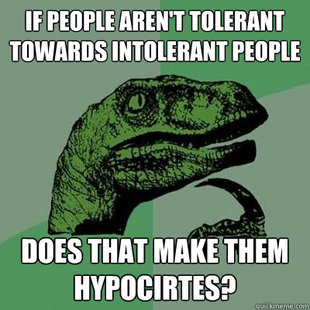
You don’t have to agree with, only learn to peacefully live with, other people’s freedom of choice. This includes (but is not limited to) political views, religious beliefs, dietary restrictions, matters of the heart, career paths, etc.
Our opinions and beliefs tend to change depending on time, place, and circumstance. And since we all experience life differently, there are multiple theories on what’s best, what’s moral, what’s right, and what’s wrong.
It is important to remember that other people’s perspective on reality is as valid as your own. This is why the first principle of Buddhist Boot Camp is that the opposite of what you know is also true.
No matter how certain we are of our version of the truth, we must humbly accept the possibility that someone who believes the exact opposite could also be right (according to their time, place, and circumstance). This is the key to forgiveness, patience, and understanding.
That said, tolerance does not mean accepting what is harmful. Oftentimes the lesson we are to learn is when to say “no,” the right time to walk away, and when to remove ourselves from the very cause of anguish. After all, we are the ones who create the environment we live in (so we're the ones who often cause our own suffering by making those choices, which means we're the only ones who can end it as well).
While staying with different host families around the world over the years, I noticed that people’s definitions of everyday words like “comfortable” and “clean” were often very different than my own. The opposite of what I considered true proved to be just as true for others, which was very humbling. If two people can have very different definitions of what “walking distance” means, imagine bigger words like “right,” “wrong,” “God,” and “love.” The opposite of what you know is also true —Buddhist Boot Camp




No comments:
Post a Comment